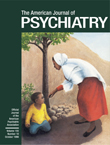The Orphans of Eritrea: Are Orphanages Part of the Problem or Part of the Solution?
Abstract
Objective:This study compared the mental health and cognitive development of 9- to 12-year-old Eritrean war orphans living in two orphanages that differed qualitatively in patterns of staff interaction and styles of child care management. Method:The directors and several child care workers at each institution were asked to complete staff organization and child management questionnaires. The psychological state of 40 orphans at each institution was evaluated by comparing their behavioral symptoms and performance on cognitive measures. Results:Orphans who lived in a setting where the entire staff participated in decisions affecting the children, and where the children were encouraged to become self-reliant through personal interactions with staff members, showed significantly fewer behavioral symptoms of emotional distress than orphans who lived in a setting where the director made decisions, daily routines were determined by explicit rules and schedules, and interactions between staff members and the children were impersonal.Conclusions:When orphanages are the only means of survival for war orphans, a group setting where the staff shares in the responsibilities of child management, is sensitive to the individuality of the children, and establishes stable personal ties with the children serves the emotional needs and psychological development of the orphans more effectively than a group setting that attempts to create a secure environment through an authoritative style of management with explicit rules and well-defined schedules. Am J Psychiatry 1998; 155: 1319-1324



